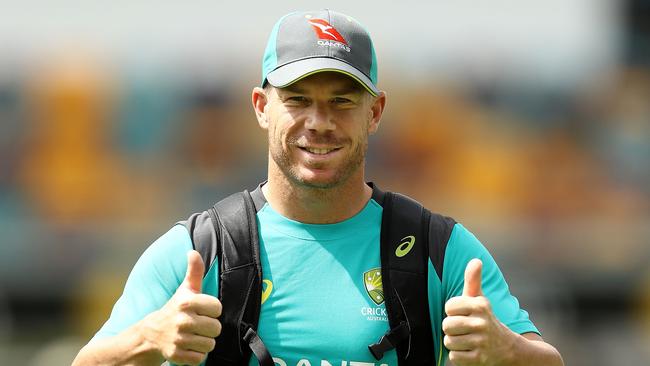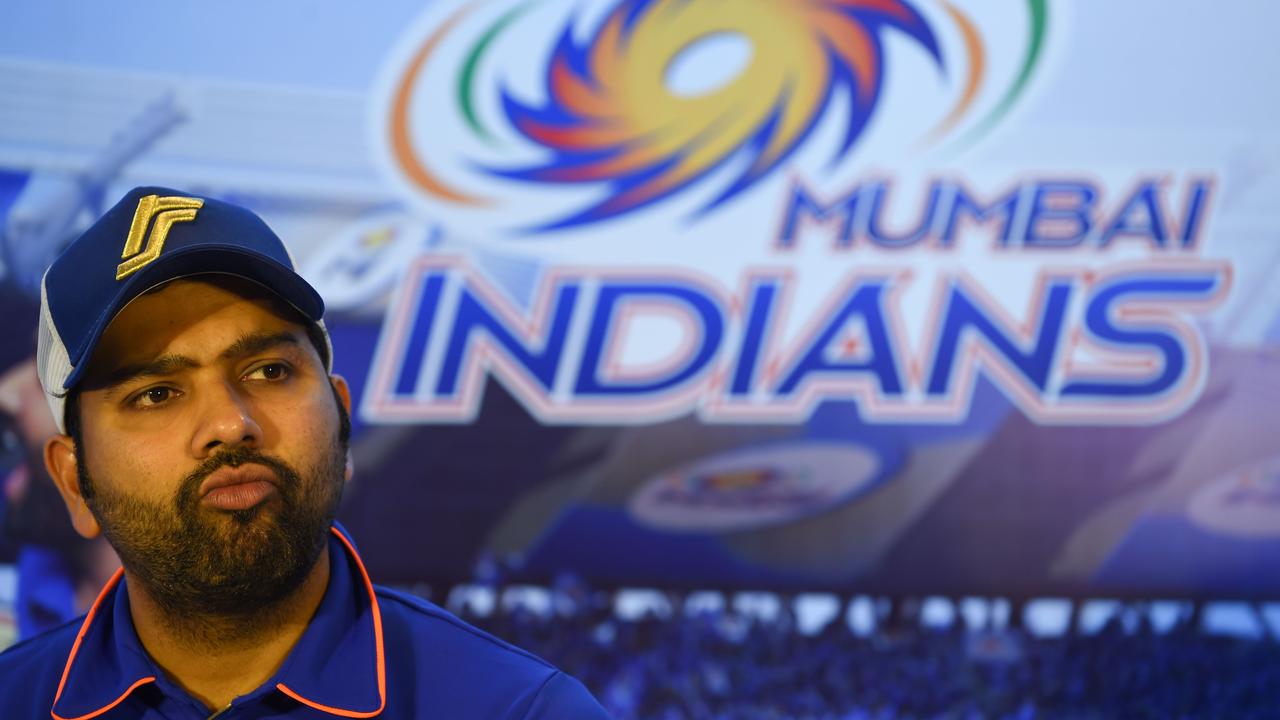David Warner the survivor in cricket’s Game of Thrones
A year ago, David Warner was widely written off but now his remarkable return to the national team is upon us.

Warner is coming …
Like the much-heralded approach of the climactic season of Game of Thrones, the countdown to the end of David Warner’s year in purdah on March 28 has been a communal obsession these last weeks.
Yesterday in Dubai he was mingling if not playing with Australian teammates past and, now apparently, future. Steve Smith was with him, but nobody seriously imagined that he would not represent Australia again; Cameron Bancroft, meanwhile, has already returned.
A year ago, by contrast, Warner was widely written off, reportedly facing team ostracism as well as public scorn, despite never being charged by the International Cricket Council with any offence — his penalty was imposed solely by Cricket Australia both for “development of a plan” and “instruction of a junior player” compounded by “failure to report”.
His penalty will continue, for Warner is never again to be considered for a leadership role. But it’s a remarkable comeback by any measure, not least because of the upheavals since.
At the time Warner and his co-conspirators were sentenced, CA was chaired by David Peever, run by James Sutherland; Cricket NSW was chaired by John Warn, run by Andrew Jones; the national team was managed by Pat Howard, coached by Darren Lehmann and David Saker. All have moved on; Warner has even outlasted the officer who laid the charges against him, integrity chief Iain Roy.
How did he do it? He did what he was advised, deferentially dropping back to club level with a sprinkling of domestic T20, and didn’t do the ill-advised, one mild to-do in a grade match in October apart.
There were no appeals, no pleas in mitigation, no stumbles into the social media briar patch. There were no 60 Minutes- and/ or Australian Story-assisted self-justifications and self-mortifications.
Nor after an early sighting of his wife Candice with a ubiquitous Sydney PR queen, was there evidence of contrivance, image management or spin doctoring. No matey bonding with Gilly; no tarrying with telcos. Warner, with an experienced new agent in James Erskine, has refused all baits.
I am sensitive to the profound sense of betrayal that followed Sandpapergate. I also hold no particular brief for Warner, who at times in his career has courted unpopularity with opponents and sections of the public too willingly and impenitently.
Yet the Australian set-up was also perfectly comfortable with his general abrasiveness until an instance of specific abrasiveness was detected. Then CA started making like the Marylebone Cricket Club after Bodyline, backing away from Harold Larwood, another working-class lad primed to do the tough stuff who then became a source of shame and embarrassment.
There is concern now that hasty reincorporation of Warner and also Smith will jeopardise the hard-won advances of the past few weeks. If they are so easily reversible then they were not true advances. The uptick in fortunes provides a perfect opportunity to repatriate the exiles on terms amenable to the team.
Besides, if you’re watching the capers that Sheffield Shield batsmen are cutting against the hard red Dukes ball rather than the sixes being carted off a greasy white SG ball in India, then it’s hard to argue against Australia being stronger in England for the experience of its best two batsmen.
It’s a risk. Of course it is. Sometimes such reassimilations work, sometimes not. Shane Warne did a year’s time that probably added a couple of years to his career; Kevin Pietersen resumed after four months’ brooding, only for it to end in tears after another eighteen.
Cricketers, though, are practical. They combine for sporting not social reasons; nor, with the presence of families and children on tour, do they depend on one another off field anywhere near as much as they used to. Those who nursed misgivings about Warner’s past behaviour, too, may in future feel easier exercising a moderating influence. In any case, months of theories are not worth a day’s interaction, which is precisely what next week’s journey to the UAE is about.
A tough northern summer awaits Smith and Warner, perhaps a depressing one, with little privacy or protection from the English tabloid cosh. But for the team their absence would be every bit as tough: any batsman playing ahead of either would come under disproportionate scrutiny. Who would wish to be the opening batsman failing a few times with David Warner a supernumerary?
Sandpapergate continues to challenge CA. The many departures have only been partial resolutions. Roy’s report on Cape Town was acutely circumscribed. Only a handful of players and officials were interviewed, and merely about Bancroft’s indiscretion: the precise extent of Australia’s ball management black ops was outside Roy’s remit.
CA were not resolved to establish the extent of cheating; they were involved in damage control. Until a full accounting, an odour will remain. One suspects that the game will choose to put up with that. Sunlight might be the best disinfectant, as they say, but too much can leave you red in the face.
The crisis, of course, pitched CA into the year’s soul-searching that found fullest expression in last year’s ‘cultural review’ by the Ethics Centre. For that they probably deserved more credit. How flattering would similar mirrors held up to other sporting organisations have been? If it is early days telling how deep this runs, there was a new note to CA’s public interactions this summer, less obviously high-handed and dictatorial.
Warner and his once and future employer, then, have developed an ironic resemblance — both humbled, both groping for a new modus operandi in the quest for restored public favour, and making like the Lannisters in paying their debts.



To join the conversation, please log in. Don't have an account? Register
Join the conversation, you are commenting as Logout